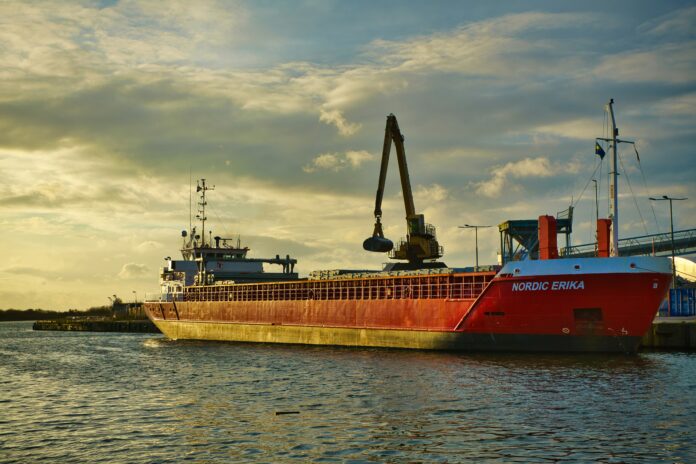
In the maritime industry, every pound matters. Ships operating with lighter components consume less fuel, achieve higher speeds, and require less frequent maintenance, all of which help cut down costs and boost sustainability. The International Renewable Energy Agency (IRENA) reports that the use of high-tensile steel and other composite materials can offer fuel consumption savings of about 0.2–0.5% per ton of cargo transported. These days, high-performance materials such as titanium are helping organizations overcome challenges, including durability under harsh sea conditions, while offering a host of additional benefits, such as greater sustainability.
New Research on High-Performance Materials
Researchers around the globe are proving that it pays to switch to sturdier, lighter, longer-lasting materials. European researchers working on the project CREATING tested a new material (a compound made of aluminum foam and titanium hydride) to replace steel plates in hulls. They found that this material could reduce the ship’s weight by about 30%. For an average-sized freight vessel with a 7,000m3 capacity, this corresponds to a reduction of over 1,000 tons. In one study of container ships and tankers, meanwhile, a 1% reduction in hull steel weight led to roughly 0.2-0.3% lower daily fuel consumption. It’s a big wake-up call to the importance of finding ways to reduce vessel weights, even by a fraction.
The Long-Term Value of Titanium
Titanium suppliers are also making a big difference in the maritime logistics sector. Titanium components are highly resistant to seawater corrosion. Titanium can be used in elements such as propeller shafts, heat exchangers, and structural fittings, thereby extending vessel lifespans and improving overall efficiency without the need for extensive overhauls. Research shows that when titanium is employed in exhaust gas scrubbers instead of stainless steel, it has an extended lifespan of around 25 years. Stainless steel must be replaced every 5 to 7 years, which is far shorter than the time required for titanium replacement. Currently, the return on investment for titanium is less than 24 months under certain operating conditions, as reported by the International Titanium Association (ITA).
The Use of Lightweight Panels
Research has shown that installing lightweight phase-change material (PCM) panels for vessel insulation can yield fuel savings of around 6.9%. The positive outcomes can be attributed to the lighter weight of panels and their latent heat storage. Overall, these panels can reduce a vessel’s carbon footprint by an impressive 7.1%. Unlike conventional insulation, PCM panels absorb and release latent heat as they change phases. This process stabilizes the vessel’s internal temperature and reducing the demand on heating and cooling systems. Enhanced enhanced thermal regulation means less energy is consumed to maintain optimal conditions below deck. Finally, the lighter weight of PCM panels reduces the total mass ships carry, thus contributing to lower fuel consumption and emissions.
Composite Tween Decks
Tween decks—the intermediate decks used in cargo holds—were once universally constructed in steel, adding significant weight. Replacing steel tween decks with composite materials, which are up to 50% lighter, can reduce fuel consumption by around 0.25% when four decks are replaced. These benefits may seem relatively small compared to those previously mentioned, but they extend beyond fuel efficiency. For instance, lighter decks permit vessels to carry more cargo, simplify installation, and reduce maintenance requirements owing to better corrosion resistance. The use of composite materials in these components shows how material upgrades can deliver efficiency gains in multiple areas.
Investing in high-performance, lightweight materials has significant tangible benefits for maritime logistics. It reduces fuel consumption, lowers emissions, and cuts maintenance costs. From PCM panels to composite decks and selective use of titanium, smart material choices boost vessel efficiency and sustainability. Lighter ships not only save money but also help the industry meet urgent environmental goals.




